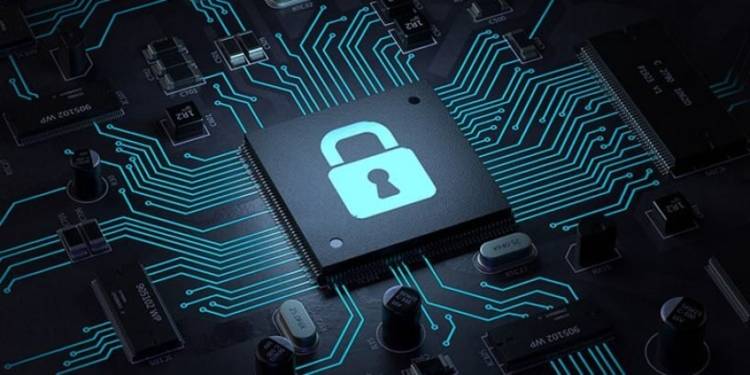
The Lahore High Court (LHC) has declared that it is unlawful and unconstitutional to spy on or collect data from a person's or a suspect's personal mobile phone without a court's approval.
"Extracting information from the personal phone of an accused during a criminal process is a serious issue, which attracted our attention to examine the law on the subject," the judges said in a decision permitting the appeal of a man found guilty of spreading the ideas of a prohibited organization.
The bench comprised Justice Ali Baqar Najafi and Justice Muhammad Amjad Rafiq.
The ruling, written by Justice Rafiq, highlighted that individuals today practically live on their cell phones, conversing with loved ones, communicating via audio or video conversations, and exchanging information and messages in both public and private settings. Therefore, it said, "Our phone is comparable to or equal to a home."
The ruling said that any domestic or private relationship that a person maintained inside the confines of their home was legally protected by the Constitution.
We are aware that human impulses have no boundaries; they extend to Sufism, ideology, politics, art, culture, customs, traditions, literature, music, poetry, history, commerce, sports, etc.
It said that anything may appeal to a person, for which they searched through books, the internet, letters with academics, etc., and that such research into physiological knowledge was not against the law.
They said that reason was beyond human grasp and that it struggled until it was resolved into an accepted idea of knowledge. They also cited institutionalized procedures and worldly pathways.
"Until then, any information that a person wants to keep secret on his cell phone cannot be extracted except with his consent or as the law directs because the privacy of the home is subject to the law," the ruling stated.
It was decided that the right to privacy should take precedence over any other inconsistencies in domestic law since it is a basic constitutional right.
The court's ruling stated that the pertinent statute was very explicit in stating that collecting information stored in an information system or seizing items holding such information required a court's participation. This may be done by obtaining a warrant or another form of court notification within 24 hours after the seizure.
"Therefore, when any mobile phone is recovered from a suspect and any data retrieval therefrom is essential for criminal investigation, it could only be obtained with the permission of the concerned court with strict regard to privacy rights guaranteed under the Constitution," the verdict read.
The justices ruled that in cases where the police wanted to obtain information from a suspect's mobile phone at the moment of arrest, a relevant magistrate's order was necessary.
After speaking with the suspect, the magistrate might issue a directive that would strictly abide by Article 14 of the Constitution and call for the examination and extraction of just the information pertinent to the case.
The judgment noted that every American has the right to object to a warrantless search of his or her phone.
"Extracting information from the personal phone of an accused during a criminal process is a serious issue, which attracted our attention to examine the law on the subject," the judges said in a decision permitting the appeal of a man found guilty of spreading the ideas of a prohibited organization.
The bench comprised Justice Ali Baqar Najafi and Justice Muhammad Amjad Rafiq.
The ruling, written by Justice Rafiq, highlighted that individuals today practically live on their cell phones, conversing with loved ones, communicating via audio or video conversations, and exchanging information and messages in both public and private settings. Therefore, it said, "Our phone is comparable to or equal to a home."
The ruling said that any domestic or private relationship that a person maintained inside the confines of their home was legally protected by the Constitution.
We are aware that human impulses have no boundaries; they extend to Sufism, ideology, politics, art, culture, customs, traditions, literature, music, poetry, history, commerce, sports, etc.
It said that anything may appeal to a person, for which they searched through books, the internet, letters with academics, etc., and that such research into physiological knowledge was not against the law.
They said that reason was beyond human grasp and that it struggled until it was resolved into an accepted idea of knowledge. They also cited institutionalized procedures and worldly pathways.
"Until then, any information that a person wants to keep secret on his cell phone cannot be extracted except with his consent or as the law directs because the privacy of the home is subject to the law," the ruling stated.
It was decided that the right to privacy should take precedence over any other inconsistencies in domestic law since it is a basic constitutional right.
The court's ruling stated that the pertinent statute was very explicit in stating that collecting information stored in an information system or seizing items holding such information required a court's participation. This may be done by obtaining a warrant or another form of court notification within 24 hours after the seizure.
"Therefore, when any mobile phone is recovered from a suspect and any data retrieval therefrom is essential for criminal investigation, it could only be obtained with the permission of the concerned court with strict regard to privacy rights guaranteed under the Constitution," the verdict read.
The justices ruled that in cases where the police wanted to obtain information from a suspect's mobile phone at the moment of arrest, a relevant magistrate's order was necessary.
After speaking with the suspect, the magistrate might issue a directive that would strictly abide by Article 14 of the Constitution and call for the examination and extraction of just the information pertinent to the case.
The judgment noted that every American has the right to object to a warrantless search of his or her phone.

